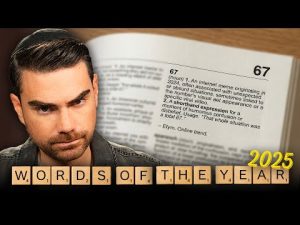In a move that many predicted but hoped wouldn’t come to fruition, President Joe Biden has pardoned his son, Hunter Biden, effectively overturning the very statements he made about not intervening in his son’s legal troubles. This latest chapter in the Biden saga raises significant concerns about trust, justice, and the ethical implications of familial ties in politics.
The recent pardon covers not just the gun and tax-related charges Hunter was convicted of but extends retroactively, shielding him from any alleged offenses dating back to 2014. This broad scope of the pardon suggests a calculated attempt to protect Hunter from a range of possible incriminating actions, some of which have been under scrutiny for years. Critics argue that this is more than just a father’s protection of his son; it represents a double standard in the judicial process, one that could very well undermine citizen confidence in justice.
Many remember when Biden publicly stated he would not pardon his son if conviction were to occur. Yet, this “surprise” pardon makes it clear that loyalty to family surpasses any commitment to transparency or accountability. The President’s stance raises an eyebrow: if he was sincere in his words back then, it seems hard to reconcile that with the decision made now. A simple assumption could be drawn here—trust has officially flown right out the window.
Further complicating matters, Hunter Biden has been at the heart of numerous scandals involving international dealings and lucrative positions obtained without any relevant qualifications. Allegations abound that he benefited from his father’s political influence while engaging in questionable financial activities. For example, his infamous dealings in Ukraine and China have left many wondering if he was truly working for his income or simply cashing in on a surname. The pardon, then, appears as a protective cloak extended over questionable actions rather than a step toward justice or accountability.
The timing of Biden’s actions and the presence of various investigations into former President Donald Trump add a layer of irony to this situation. Republicans argue that the Biden administration uses cases like Hunter’s and Trump’s to play a political balancing act, projecting an image of fairness while aiming to relieve pressure on their own party. In this light, Hunter’s pardon can easily be seen as part of a self-serving maneuver rather than a sincere act of compassion.
In defending the pardon, President Biden claimed that Hunter was unfairly targeted by the justice system. This assertion raises more than a few eyebrows when presented alongside evidence that suggests a multiplicity of factors led to the charges against Hunter, which were serious and not merely the results of political rivalry. The President’s assertion that Hunter’s circumstance is a miscarriage of justice serves only to lay bare the inconsistencies in his commitment to fairness and ethical standards.
In summary, the conclusion to this story is bound to fuel further debates about corruption, privilege, and justice in America. With so many unanswered questions and glaring contradictions, Americans must remain vigilant. The lines between politics, familial loyalty, and justice continue to blur in ways that could have lasting implications for democracy. It’s time to ask the fundamental questions: who truly benefits from this pardon, and at what cost to the integrity of our justice system? The answers may not be so comforting.







